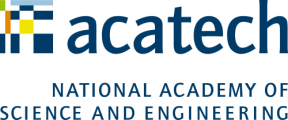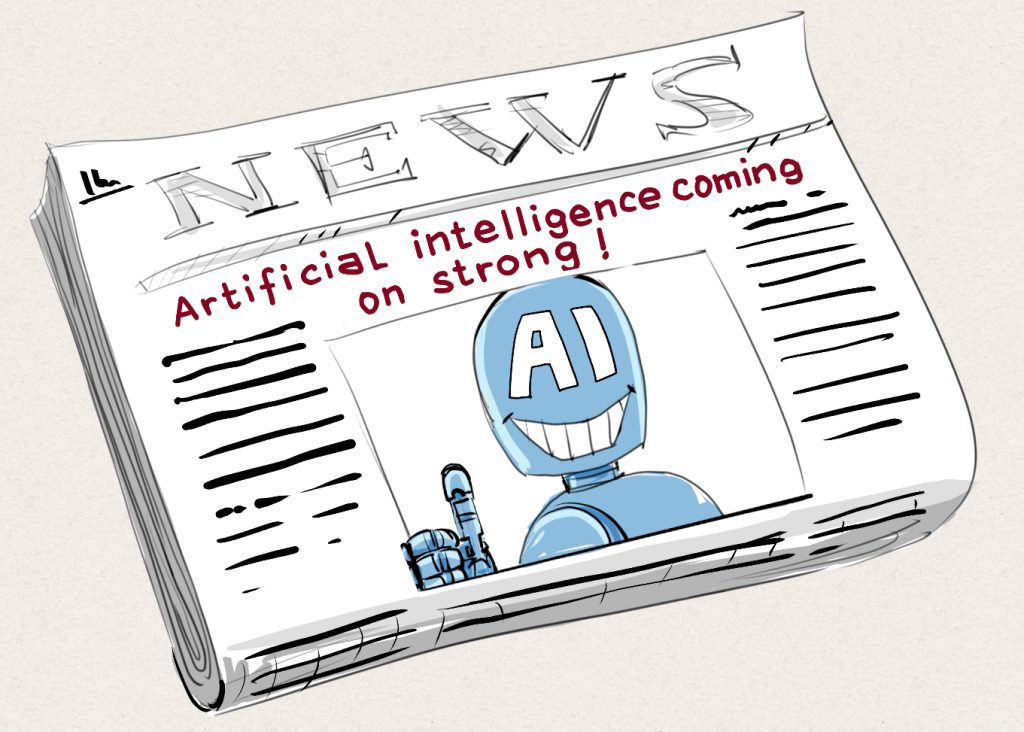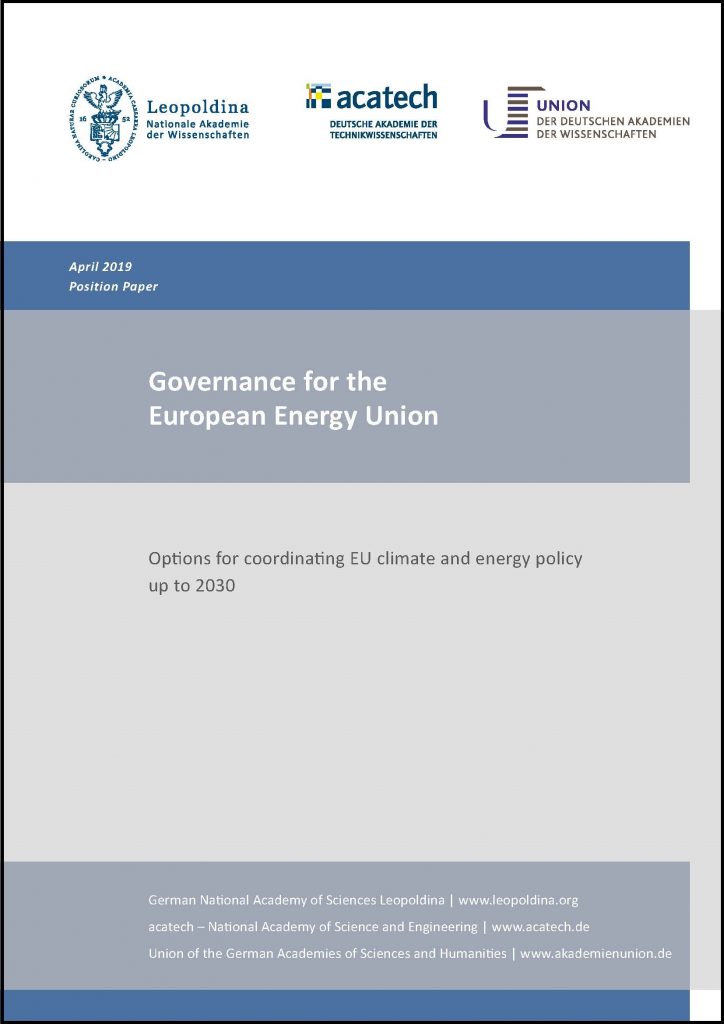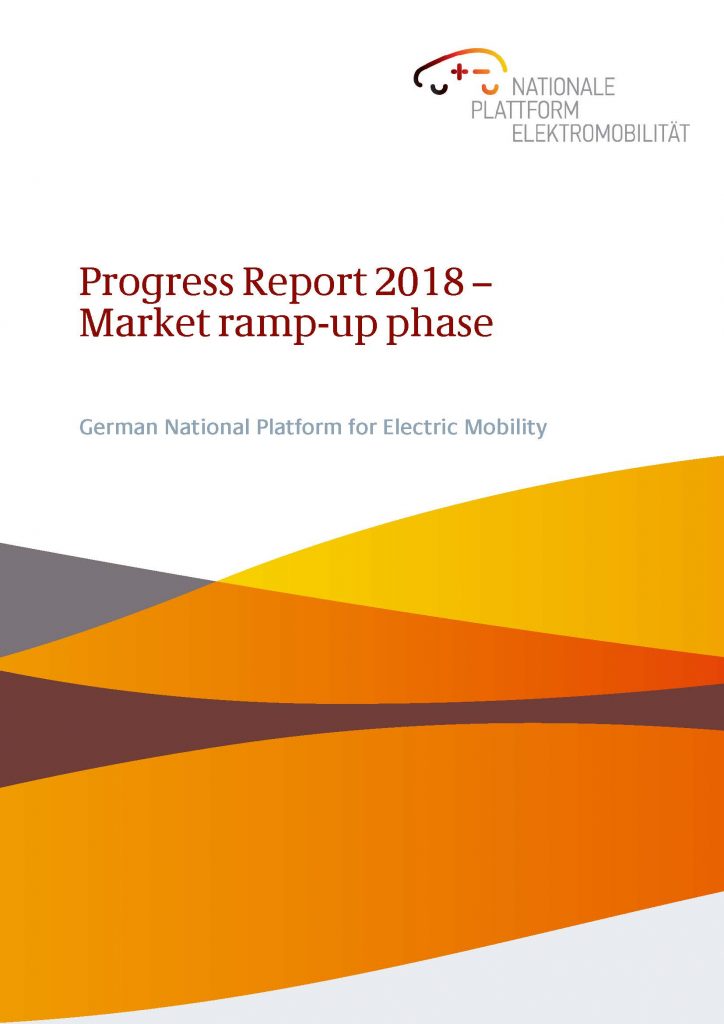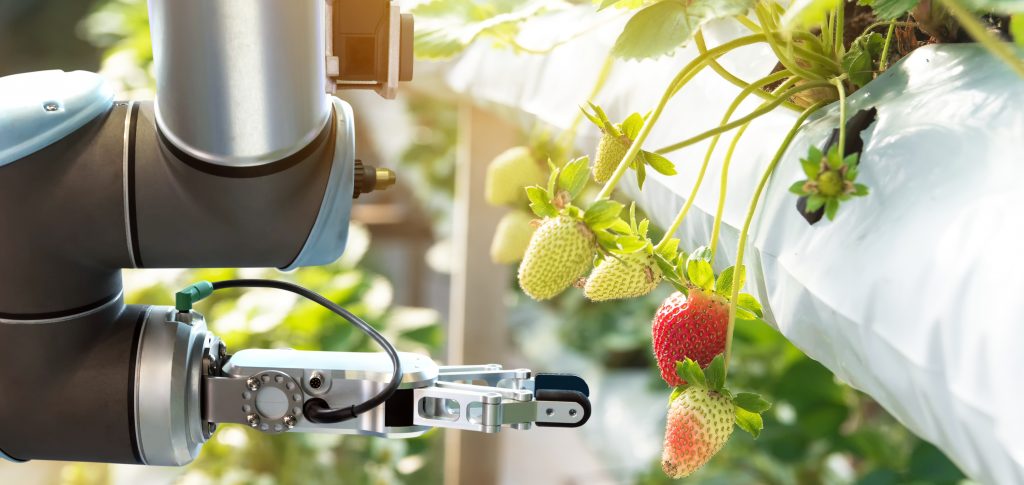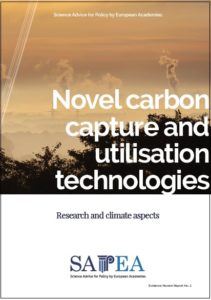Presidents’ Foreword
2018 was a year of change and continuity, breaks and new beginnings. acatech – National Academy of Science and Engineering has now been providing policymakers and society with independent, evidence-based advice that is in the public interest for ten years. The Academy’s work has been funded by the Federal Government and the Länder since 2008.
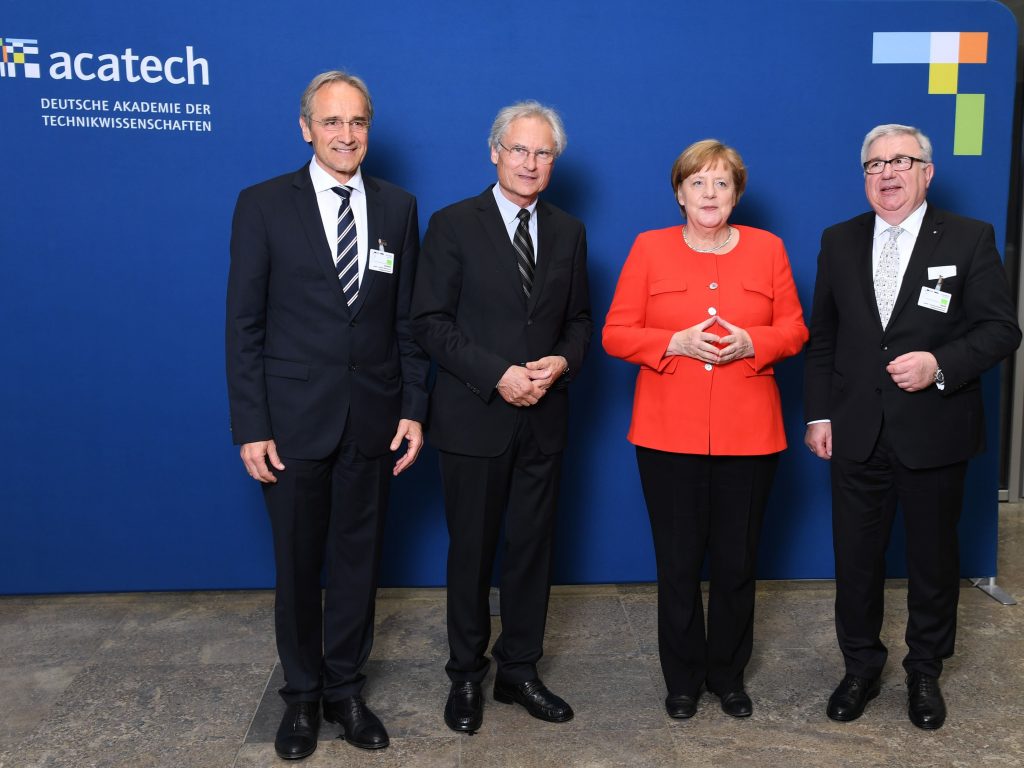
One of the changes occurred in May, when Henning Kagermann handed over the acatech presidency, having come to the end of his term of office. We would like to express our sincere thanks for the groundbreaking work that he has undertaken together with Reinhard F. Hüttl. We are delighted that he is staying on as a member of the acatech Board of Trustees. At the official handover ceremony in Berlin, Federal Chancellor Angela Merkel paid tribute to the outgoing President: “As one of acatech’s two Presidents, you have led the Academy for almost nine years. In this time, you have established yourself as the voice and champion of the technological sciences, and your opinion has become an essential point of reference”. Chancellor Merkel commended acatech as a “national academy of international stature” and tasked it with continuing to prepare the Innovation Dialogues between the Federal Government, industry and science during the new term of parliament.
Now a trusted partner, and with its sights set firmly on the future, 2018 marked the beginning of both a new decade for acatech and a new phase in the Academy’s development.
acatech was the driving force behind the launch of the strategic projects Industrie 4.0 and Smart Service Welt. Now, we must make Germany and Europe the global leaders in digitalisation. acatech’s role is to act as a broker between science, industry, government and the public, helping them to jointly shape digitalisation and the proliferation of artificial intelligence (AI) in our work and everyday lives in a way that puts people first. Coordinated by acatech, Germany’s AI platform Plattform Lernende Systeme began its work programme last year. It has already launched its first application scenarios for future uses of AI in fields such as oncology and rescue operations, together with its first publications and a map of AI applications in Germany that was officially presented at the Digital Summit at the end of last year. The platform coordinates Germany’s initiatives in this field and, like acatech, seeks to promote public debate.
The Academy is also closely involved in Germany’s Science Years. The theme of the 2018 Science Year was “The Working Life of the Future”. This was addressed at our Academy Day “Arbeit mit Zukunft” (Jobs with a Future) in Magdeburg, while a public discussion on this topic was held the day before as part of the “Wissenschaft Kontrovers” series. The Academy was also a partner at the official launch of the Science Year, the ergonomics conference at the Federal Ministry of Education and Research and the closing event at the Fraunhofer IAO. Artificial intelligence has been chosen as the theme of the 2019 Science Year – and acatech and the Plattform Lernende Systeme will once again be making a significant contribution to the debate.
The goal for the next few years must be for Germany and Europe to become leaders in digitalisation and AI applications, instead of playing catch-up with pioneers in other parts of the world. The key question is who will develop the operating system for the platform economy, thereby gaining influence over the associated business models. Germany has already established a number of initial platform standards and networks of trusted partners. Now we need to go one step further and create a European Open Data Space Community – a pre-competitive network of trusted partners for open data exchange based on common rules. We firmly believe that we can create the next generation of global digital champions by combining our strengths in the industrial sector with the advantages of the platform economy and “AI Made in Germany”.
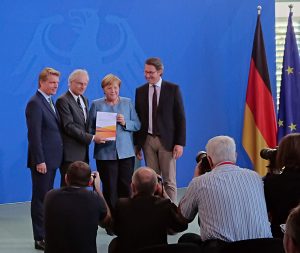
Another theme that was high on the Academy’s agenda in 2018 and will continue to occupy us in years to come is the transition to a better mobility system – in other words, one that is affordable, climate-friendly, sustainable and tailored to individual requirements. In 2018, the Federal Government underlined the importance of this topic when it extended the remit of the German National Platform for Electric Mobility, relaunching it as the National Platform Future of Mobility. The new platform aims to establish a systemic connection between mobility and the energy transition. The joint academy project Energy Systems of the Future (ESYS), which is coordinated by acatech, had already highlighted the significance of this connection and published concrete proposals on energy sector coupling and regulatory incentives.
Technology in society
Whatever the topic, we believe that it is our responsibility to support the public debate on technology in an independent, evidence-based manner. Our mission is to help members of the public to independently make up their own minds about technological advances on the basis of objective facts. We want to promote public debate of new technologies from an early stage, discussing their potential benefits, the risks that we should seek to avoid, and how we can use them to shape our future as a whole.
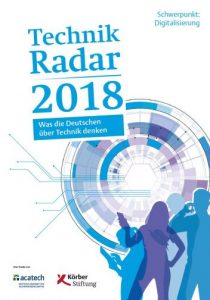
But what do people in Germany think about technology? This question was addressed by TechnikRadar, a nationwide, representative survey carried out by acatech and the Körber Foundation. Although almost 90 percent of Germans think that it is impossible to halt technological progress, around 70 percent want to have a say in the future of controversial technologies. Three quarters of people in Germany believe that new technologies should be compatible with social values, justice and protecting the environment. The survey’s findings belie the image of Germans as technophobes plagued by “German Angst”. Instead, they reveal a wide variety of different attitudes towards new technologies.
acatech does not shy away from the fact that new technologies are often controversial. A case in point was last year’s POSITION PAPER “CCU and CCS – Contributing to Climate Protection in Industry”, in which acatech calls for an open discussion of carbon capture, utilisation and storage (CCU and CCS). It is important to stress that this technology is only considered as an option for tackling otherwise unpreventable greenhouse gas emissions that are generated by industrial processes involved in chemical and concrete production, for example. The Academy believes that CCU and CCS are important options for closing the emerging climate protection gap.
Discussion and debate are key to building a public consensus on technology. We have already hosted twelve public debates at the acatech Forum on Munich’s Karolinenplatz, where our “acatech am Dienstag” (acatech on Tuesday) events have become a fixture in the Munich calendar. Last autumn, acatech started bringing these evening debates to other parts of Bavaria, too. On a national level, the Academy is a partner in the “Wissenschaft kontrovers” discussion series organised by “Wissenschaft im Dialog”. Finally, the science slam at the Münchner Wirtshaus and the “Derblecken” science and engineering comedy event provided a more humorous take on the issues.
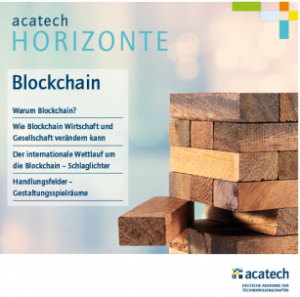
Last year, we developed a new format to discuss topics looming large on the horizon. The acatech HORIZONS series addresses technology fields where – despite their undoubted importance – there are still many questions to be answered. The choice of topics for this series is based on the results of expert surveys, while the individual HORIZONS publications are informed by a dialogue amongst experts in science, industry, government and NGOs. Published in autumn 2018, the first instalment in the series addressed the topic of blockchain.
The Joint Science Conference of the Federal Government and the Länder increased its annual funding from €2.5 million to €3.75 million thanks to an additional contribution of €1.25 million a year from the Free State of Bavaria. This has placed our work on an even stronger financial footing.
While acatech’s Annual Meeting on 16 October 2018 in Berlin celebrated the Academy’s 10th anniversary, its main focus was on the future. The Academy chose this event at Berlin’s Konzerthaus to launch the first publication in its new acatech HORIZONS series, on the subject of blockchain. acatech’s Presidents addressed the topics of artificial intelligence and the future of work, while the Chairman of the Executive Board of Merck, Stefan Oschmann, spoke about the latest developments in the field of biotechnology. They were followed on stage by the winners of the PUNKT prize for technology journalism, Helga Rietz-Pankoke (NZZ) and Wolfgang Richter (GEO). This year’s PUNKT prize once again registered a record number of entries.
Biotechnology also provided the main theme for the annual meeting of the acatech Senate in Munich on 6 July 2018. The combination of new techniques and big data is making biotechnology one of the most dynamic areas of innovation today.
It is impossible to put a price on the people who contribute their knowledge and ideas to acatech. To a large extent, the Academy is both supported and characterised by the voluntary engagement of our scientific Members and of leading figures from industry, the trade unions, NGOs and the science organisations represented in our Senate. We were delighted to welcome 28 new scientists into the fold in 2018. We look forward to working with them and would like to thank everyone who has contributed to our topic networks and projects and to the various bodies that form part of acatech’s organisational structure.
Looking ahead to an exciting future at acatech
In 2018, acatech enjoyed the support and trust of a wide range of partners – as it enters its second decade, the Academy can now look ahead with confidence. Our plans include the launch of a German Circular Economy platform to promote a closer connection between profitability and sustainability. We have chosen biotechnology as the theme for this year’s Academy Day and will be working to support the translation of biological science into innovations. We will also be striving to help Europe and Germany become digital champions and a leading locations for AI. We hope that you find our annual report interesting and look forward to your contributions to the Academy’s future work.
Munich and Berlin, March 2019
Prof. Dr.-Ing. Dieter Spath
Karl-Heinz Streibich

Thematic fields
Technology and Society
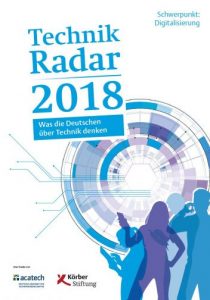
Are Germans technophobes? Which technologies are especially controversial? And are there any patterns in terms of how people’s individual circumstances affect their attitudes towards technology? These questions are addressed by the TechnikRadar survey carried out by acatech and the Körber Foundation. This representative survey investigates attitudes towards new technologies and the factors that lead to them being accepted or rejected by the public. Published in 2018, the first TechnikRadar survey focused on digitalisation. Some of its key findings are shown in the form of charts.
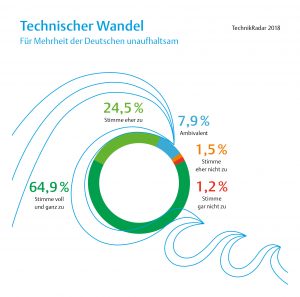
64.9% strongly agree; 24.5% agree; 7.9% don’t know; 1.5% disagree; 1.2% strongly disagree.
Almost two thirds of Germans think it is impossible to halt technological change (content available only in German).
© TechnikRadar 2018
What is acatech doing to address this scepticism? The extent to which technology – especially digital technology – is accepted will largely depend on whether the direction of technological developments follows the wishes of society. However, it will also be important to satisfy people’s security requirements, be it with regard to the use of personal data or the protection of infrastructures against unauthorised external access.
The Academy as a discussion forum
acatech sees itself as a forum for these discussions. In particular, its “acatech am Dienstag” (acatech on Tuesday) dialogue series provides an opportunity to highlight and discuss different perspectives on cutting-edge technology-related questions. The Academy is experimenting with new forms of technology communication such as science slams and science revues, and is also seeking to engage in partnerships with adult education centres, church organisations and foundations.
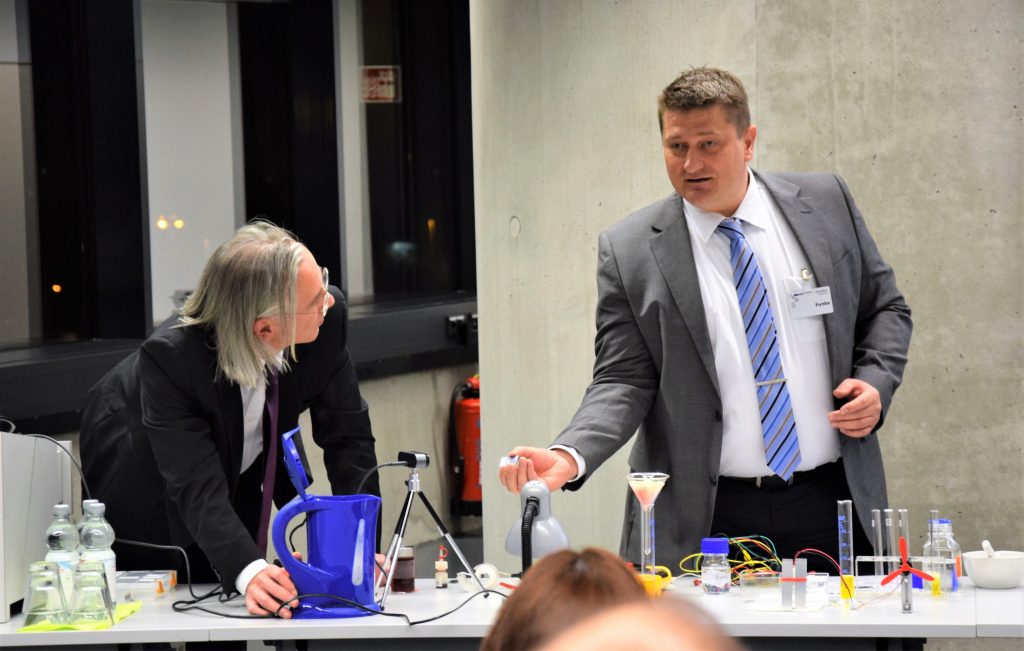
Further information
Projects
Publications
News items
* Content only available in German.
Digital & Self-learning
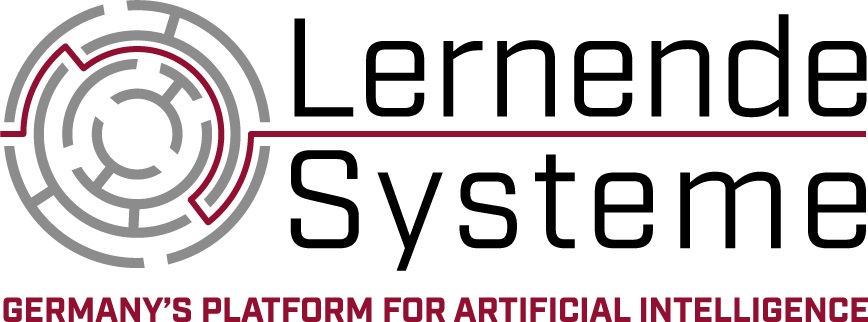
2018 saw widespread discussion of artificial intelligence (AI) among policymakers, academia and the public, not least because of the AI strategy published by the Federal Government. What can AI do, what should it be allowed to do, and how can Germany best make use of it? These questions are addressed by Germany’s AI platform Plattform Lernende Systeme, which is coordinated by acatech and began its work programme in 2018. acatech is also studying digitalisation, its impacts on how people live and work and the ways in which it can be shaped, through a variety of projects and working groups such as the Research Council of the Plattform Industrie 4.0.
Artificial intelligence will fundamentally transform our economy and enable new business models. People’s jobs are changing due to the introduction of AI-based assistance systems that lighten the workload for employees but also call for new skills. Self-learning systems are also increasingly supporting people in their everyday lives – in their homes and in the fields of transport, medicine and care. Germany has the opportunity to develop artificial intelligence in a way that puts people first. acatech had already provided input for the High-Tech Forum (2015 – 2017) and the Commission of Experts for Research and Innovation through several studies on AI and autonomous systems.
The Federal Ministry of Education and Research (BMBF) launched Germany’s AI platform Plattform Lernende Systeme at the end of 2017. It brings together Germany’s current expertise in the field of artificial intelligence, promotes a public dialogue, and supports Germany’s ongoing efforts to become a leading international supplier of self-learning systems technology. Approximately 200 experts from science, industry and civil society are involved in the Plattform Lernende Systeme’s work, which is coordinated by acatech. The platform is chaired by Federal Minister Anja Karliczek and acatech President Karl-Heinz Streibich, who took over the role from the Academy’s other President, Dieter Spath, in July 2018.

The Plattform Lernende Systeme aims to make “AI Made in Germany” a hallmark of high-quality AI innovations that address the ethical challenges associated with artificial intelligence. As a pioneer in the field of AI research and a country with internationally acclaimed scientific expertise, Germany is already strongly placed (learn more about the history of AI in our video). Furthermore, German industry can draw on decades of experience with AI and possesses valuable, application-oriented data that can be analysed and exploited with the help of AI in order to develop new, digitally enhanced business models. acatech presents some of these digital business models in its “Smart Service Welt” Massive Open Online Course (MOOC) that was launched at the 2018 Hannover Messe.
Germany can become a frontrunner in the race for AI leadership
The Digital Summit held in Nuremberg in December 2018 provided a key forum for discussions between science, industry and government on the themes of artificial intelligence (AI), Industrie 4.0 and digitalisation in general. As the host of the Summit, the Federal Government took the opportunity to present its AI strategy. The Plattform Lernende Systeme also hosted an extremely well-attended panel discussion on this topic.
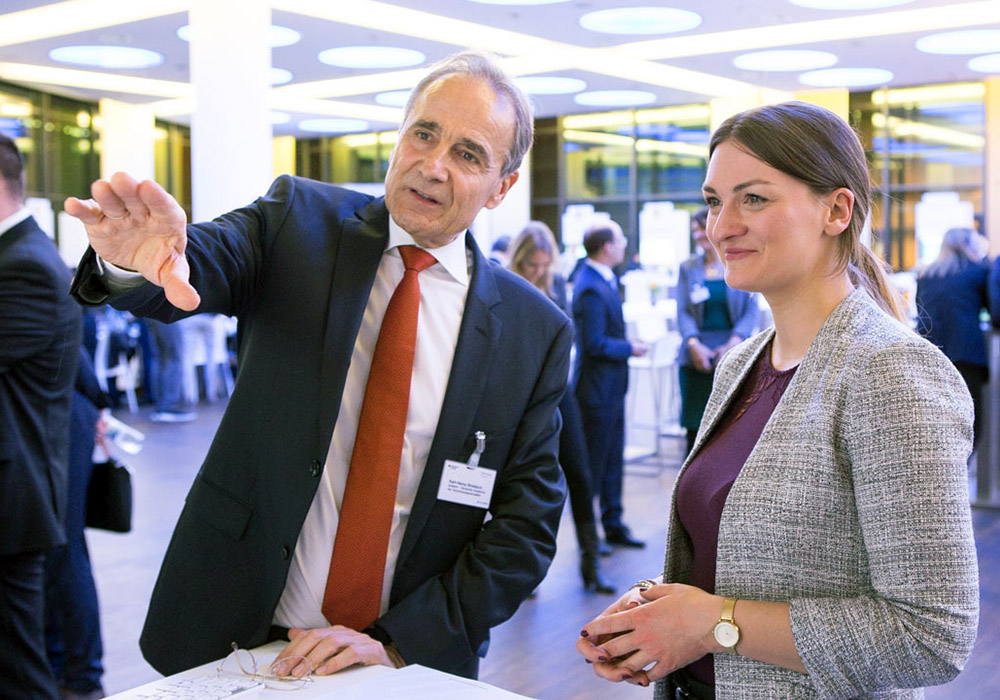
We must harness Germany’s technological leadership in the field of artificial intelligence to develop successful applications that benefit people in their everyday lives and in the workplace.
Karl-Heinz Streibich, acatech President and Chair of the Plattform Lernende Systeme
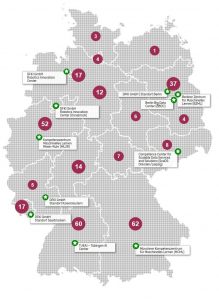
acatech President and platform Chair Karl-Heinz Streibich stressed that Germany can become a frontrunner in the race for AI leadership. He argued that it is easier for industry to develop digital platforms and AI than for the digital world to develop industrial solutions. By creating the right conditions, government can promote the effective transfer between research and industry that is needed to make this possible. Also at the Digital Summit, the Plattform Lernende Systeme presented its interactive AI map, which currently shows over 550 AI applications throughout Germany.
Ensuring cybersecurity
AI and digital assistants will only be accepted by the public and used by businesses if they are secure. Security technologies and the regulatory framework must keep pace with the latest developments if cybercrime is to be prevented and combatted as effectively as possible. The acatech project group that has been working on this topic since mid-2018 will analyse future approaches towards protecting data and connected infrastructures in the next instalment of the acatech HORIZONS series, which will be published in 2019.
Security is a complex and multifaceted challenge that calls for interdisciplinary solutions. We do not yet have a complete systems theory that enables standardised description, systematic analysis and optimal design of the security features of non-trivial real systems.
Jürgen Beyerer, Project Leader Security Systems Theory, Fraunhofer Institute of Optronics, System Technologies and Image Exploitation IOSB
It is not enough for research on cybersecurity and security in general to focus solely on the relevant technologies – it also needs to encompass “socio-technical systems”. From local public transport and airports to offshore wind farms, connected devices and machines are omnipresent in people’s everyday lives and in the workplace. We do not yet have a theory that allows us to fully describe or even measure security in socio-technical systems. In an initial attempt to address this challenge, in October 2018 acatech’s Topic Network on Safety and Security published a series of contributions to a cross-disciplinary systems theory of security.
Further information
Projects
- acatech HORIZONS: Blockchain
- Lernende Systeme – Germany’s platform for artificial intelligence
- SmartAiwork (Zukunft der Betriebsabläufe)*
- Forschungsbeirat der Plattform Industrie 4.0*
- Digital service platforms – success factors for the Smart Service Welt
- HR Working Group – Forum for HR Directors on the Future of Work
- Industrie 4.0 – Zukunft der Industriearbeit*
- Innovationskraft in Deutschland verbessern – Ökosystem für Wachstumsfinanzierung stärken (Pilotphase)*
- Studie „Autonome Systeme“ für die Expertenkommission Forschung und Innovation (EFI)*
- Big Data – Datenschutz – Privatsphäre*
- Smart Maintenance – Der Weg vom Status Quo zur Zielvision*
Publications
- Privatheit in Zeiten der Digitalisierung*
- Schule in der digitalen Transformation. Perspektiven der Bildungswissenschaften*
- acatech HORIZONTE: Blockchain*
- Smart Service Welt 2018 – Wo stehen wir? Wohin gehen wir?*
- Wandlungsfähige, menschzentrierte Strukturen in Fabriken und Netzwerken der Industrie 4.0*
- Einordnung der Beispiele der Industrie-4.0-Landkarte in die Anwendungsszenarien*
- Engineering smarter Produkte und Services*
News items
- acatech celebrates its 10th anniversary as a national academy and presents HORIZONS publication on blockchain technology
- Blockchain – a key innovation or mere hype? acatech HORIZONS publication provides a basis for discussion
- acatech launches new Smart Service Welt report and English-language MOOC at CEBIT
- acatech at the 2018 Hannover Messe: from adaptable production to connected mobility
- Study for the EFI report: how is Germany placed in the field of autonomous systems?
- Autonomous Systems: driving the mobility transition
- The German federal government’s AI strategy – Plattform Lernende Systeme organises public debate
- Plattform Lernende Systeme is broadening the public debate on AI
- Plattform Lernende Systeme – having the courage and business ideas to lead the way in AI technology
- Putting AI centre stage – Plattform Lernende Systeme brings combined expertise to CEBIT
- Plattform Lernende Systeme aims to put Germany at the top of the artificial intelligence league table
- Self-learning systems to transform the world of work
- Designing AI: Working groups of the Plattform Lernende Systeme present their thematic priorities
* Content only available in German.
Energy & Resources
In its latest special report, the IPCC stresses that time is running out to act on climate change – Germany and the rest of the world must take decisive action to transform their energy systems. If they fail to do so, it is likely that by 2030 global temperatures will already have risen by more than 1.5 degrees. This will have serious consequences for people and ecosystems alike, including an increase in extreme weather events and entire regions coming under threat from rising sea levels. acatech is exploring how Germany can accelerate its actions to tackle climate change through a number of interdisciplinary projects and initiatives such as “Energy Systems of the Future” (ESYS), a joint project with Leopoldina and the Union of the German Academies of Sciences and Humanities.
How can Germany and the EU meet their climate targets?
In September 2018, ESYS brought together some 250 representatives of government, industry, academia, civil society organisations and the media to explore how Germany and Europe can deliver their energy policy goals before it is too late. The Berlin Energy Symposium concluded that the requirements for a successful energy transition include a consistent CO₂ price that applies to all sectors (electricity, heating, transport and industry), more research and development, and cooperation with other countries.
Ottmar Edenhofer, Potsdam Institute for Climate Impact Research and Mercator Research Institute on Global Commons and Climate Change
Without a CO₂ price, the energy transition is doomed to fail.
In their position paper “Governance for a European Energy Union”, published in December 2018, the scientists involved in the joint academy project ESYS propose a series of measures for a climate-friendly energy supply in the EU that complement the current regulatory framework and the EU’s new governance regulation. These include financial incentives to promote stronger climate action, the option of imposing sanctions on countries that fail to set national climate targets or set targets that lack the necessary ambition, and the establishment of trailblazing alliances among the most committed nations.
A broader outlook: learning from Asia
Cooperation with partners in the Far East can benefit energy policy in Germany. This is the conclusion arrived at by acatech and the Federation of German Industries (BDI) in their joint project “Pathways into the energy future. The transformation of energy systems in an international perspective” . On a visit to China, Japan and South Korea, a high-level delegation discovered that these countries are ahead of Germany in certain aspects of power grid development, battery research and hydrogen power. Germany should therefore strengthen its cooperation with Asian experts in order to keep up with the latest international developments.
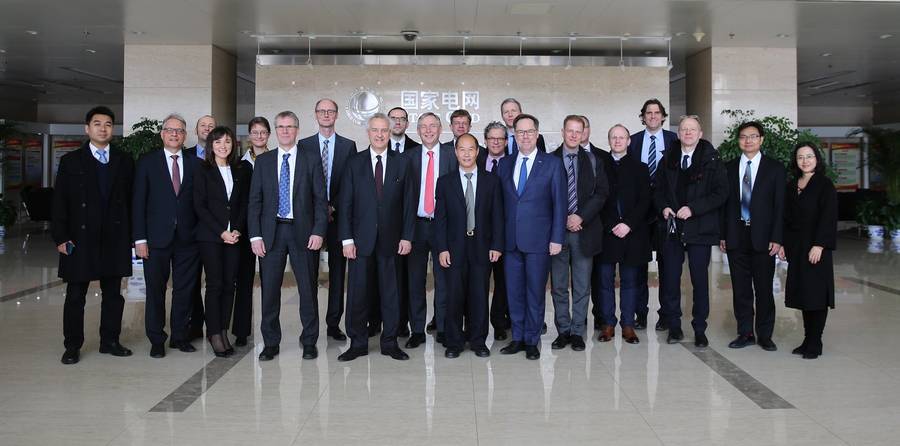
Utilising or storing CO₂ and cutting emissions from industry
Improvements in energy efficiency can only prevent some of the CO₂ emissions from industry. But what can we do about the remaining emissions that cannot be otherwise prevented? An acatech project group has concluded that CO₂ capture, utilisation and storage of industrial process emissions could be indispensable if we are to close the gap between the reductions promised by current measures and our 2050 climate targets. A serious public debtate is required so that extensive testing can commence as soon as possible, allowing these options to be deployed by 2030.

We need a broad public debate to discuss how serious we are about meeting the Paris climate agreement targets and exactly what this will entail. That includes deciding whether we are prepared as a society to keep the option of using CCU and CCS on the table. We will need to accelerate the development of these technologies as soon as possible if we want them to be available for removing large quantities of CO₂ from the atmosphere from 2030 on.
Project leader Hans-Joachim Kümpel (acatech), speaking at the launch of the acatech POSITION PAPER CCU and CCS – Building blocks for climate protection.
Making intelligent use of sunlight
Artificial photosynthesis is a visionary, cutting-edge technology that can support climate protection efforts. There are now a number of promising research initiatives that take a leaf out of nature’s book by storing the energy from sunlight in chemical bonds, yielding chemical precursors such as carbon monoxide, methane, methanol and ammonia. In a joint position paper, acatech, Leopoldina and the Union of the German Academies of Sciences and Humanities recommend strengthening the ties between basic research and industrial research in this field, coupled with the establishment of industrial-scale production facilities for the development of commercially viable artificial photosynthesis.

Further information
Projects
- Energy Systems of the Future (ESYS)
- Biodiversität in der Agrarlandschaft*
- Pathways into the energy future. The transformation of energy systems in an international perspective
- Geothermal technologies in metropolitan regions: a contribution to the energy transition and climate protection
- CCU and CCS – Contributing to Climate Protection in Industry
- Artificial Photosynthesis: latest research, scientific and technological challenges and technology futures
Publications
- Governance for the European Energy Union
- Artenrückgang in der Agrarlandschaft: Was wissen wir und was können wir tun?*
- CCU and CCS – Building Blocks for Climate Protection in Industry. Analysis, Options and Recommendations
- Artificial Photosynthesis. State of Research, Scientific-Technological Challenges and Perspectives
- Optimierungsmodell REMod-D*
- Impulse für das 7. Energieforschungsprogramm der Bundesregierung*
- Coupling the different energy sectors – options for the next phase of the energy transition
- Raw materials for the energy transition. Securing a reliable and sustainable supply
News items
- Academies of science call for measures to support a climate-friendly energy supply in the EU
- Refocusing the energy transition
- Academies urge immediate action to protect biodiversity
- Germany should continue to develop carbon utilisation and storage as climate protection options
- How will the energy transition become a success story again?
- Using CO2 as a raw material – Perspectives from Germany and Great Britain
- European academies of science present SAPEA report on carbon capture and utilisation (CCU)
- Taking a leaf out of nature’s book: Germany’s science academies present position paper on artificial photosynthesis
* Content only available in German.
Mobility
In summer 2018, the Academy established mobility as a new priority theme at the acatech Secretariat in order to bring together all of its activities in this field. These include the Topic Network on Mobility, Logistics and Aerospace Engineering and ongoing projects such as “New autoMobility II” and the National Platform Future of Mobility (NPM). Pooling all its expertise in this area will allow the Academy to provide scientific advice to the NPM.

The next phase of the New autoMobility project – “New autoMobility II” – began in 2018. On the one hand this new phase examines the future of road transport and traffic from a technological perspective. For instance, it considers questions such as cooperation between non-automated road users and road users with different levels of automation in a future mixed traffic scenario, as well as how connectivity might enable intelligent management of this mixed traffic environment.
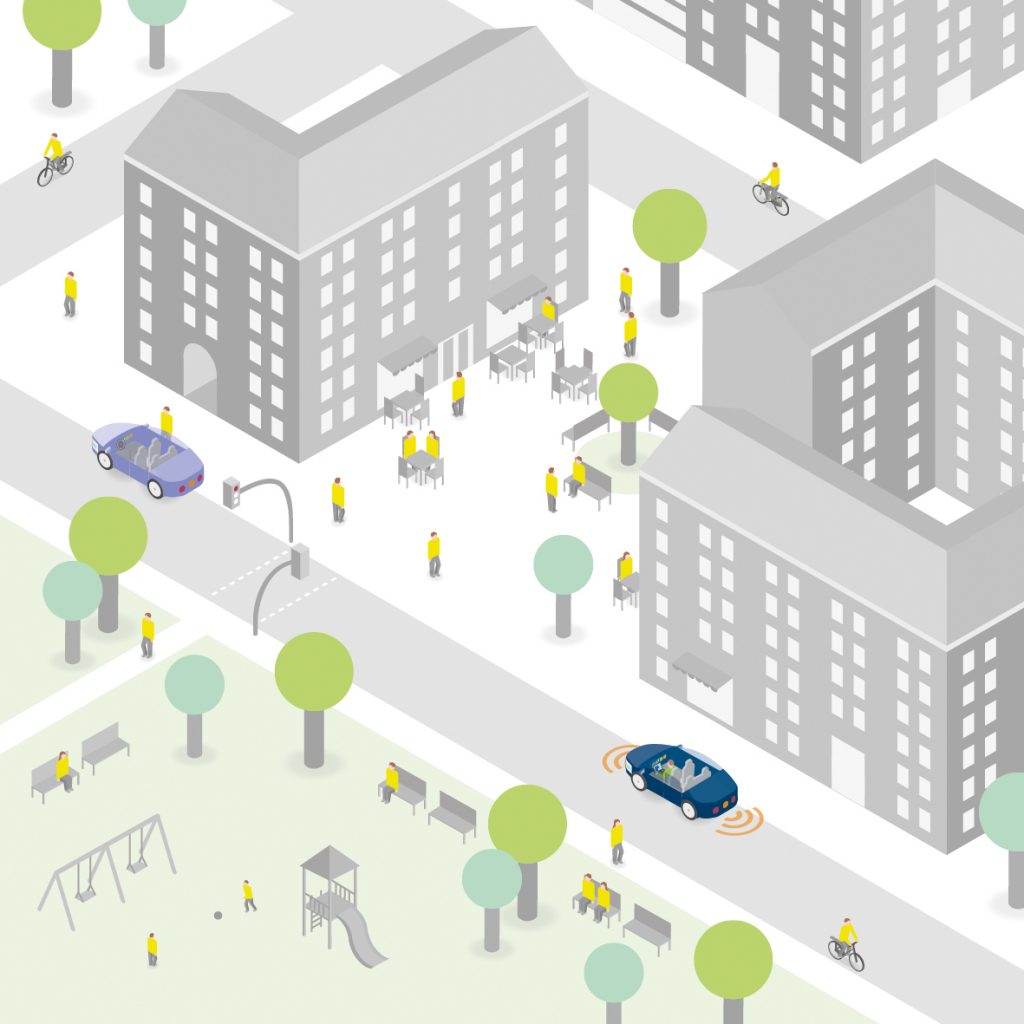
Fleets of shared vehicles reduce traffic… 
… and valet parking frees up space for more community-friendly purposes. 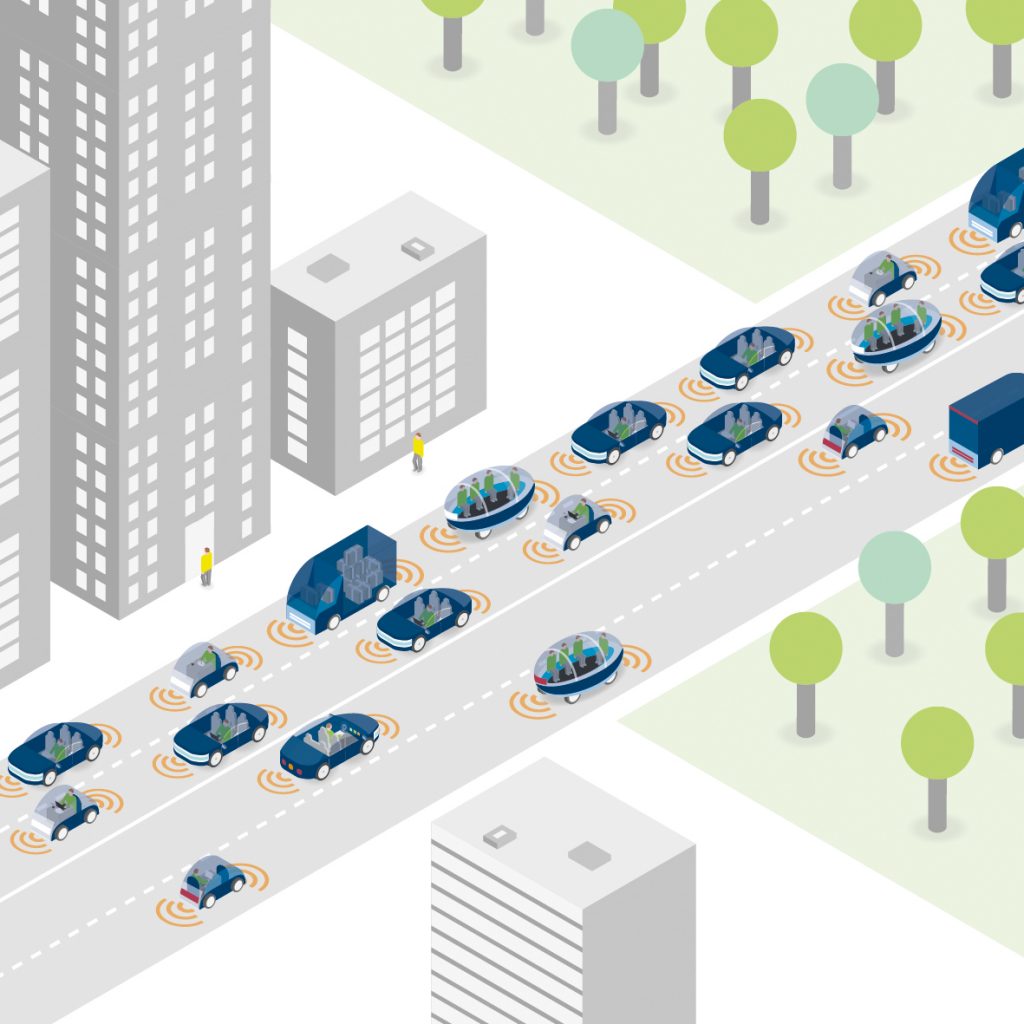
Before: During the morning rush hour, the inbound lanes are congested while the outbound lanes are relatively quiet. 
After: Dynamic road signage reassigns a third lane to inbound commuter traffic.
In addition to the technological dimension, however, the working group is also studying public participation as a key enabler of its vision of mobility in 2030. The midterm report published by the project group outlines a number of future scenarios and some initial areas where action is required in order to enable connected and automated mobility. The project group is currently bringing the results of its work together in an acatech STUDY.
The German National Platform for Electric Mobility and the National Platform Future of Mobility
Since its establishment in May 2010, the German National Platform for Electric Mobility (NPE) has been coordinated by Henning Kagermann in his capacity as Chairman of the Steering Committee, with the acatech Secretariat providing support for the NPE’s work. In September 2018, the NPE presented its Progress Report 2018 to the Federal Government. The report reviews the market ramp-up phase for electric mobility in Germany, presents the outlook for its ongoing development between now and 2025, and identifies a number of areas requiring action by government and industry. Further progress towards the establishment of electric mobility in Germany has been made since the publication of the NPE’s previous Progress Report in 2014, and the course has been for a successful start to the mass market phase.
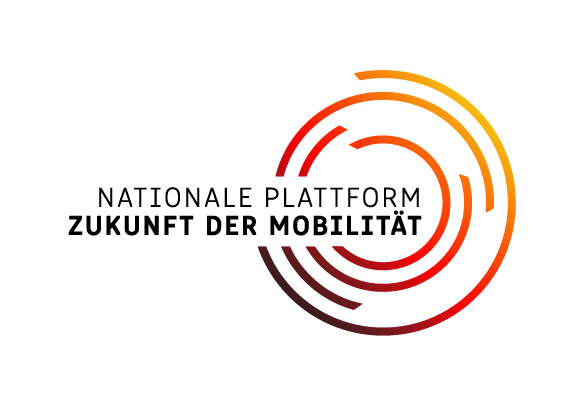
In accordance with the terms of the current government’s coalition agreement, a cabinet decision was adopted in September 2018 relaunching the NPE as the National Platform Future of Mobility (NPM). The NPM takes an integrated approach that encompasses all the different modes of transport. It will develop strategies and recommendations for building an affordable, sustainable and climate-friendly mobility system in Germany while at the same time securing competitiveness and employment.
Further information
Projects
News items
- What might connected mobility look like in 2030? The “New autoMobility” project presents future scenarios
- National Platform Future of Mobility launched at first Steering Committee meeting
- German National Platform for Electric Mobility presents Progress Report 2018 to German Chancellor
- Angela Merkel pledges to continue the Innovation Dialogues and expand the NPE into a general mobility platform
- Henning Kagermann opens Electric Transportation Systems Forum at the Hannover Messe
- acatech at the 2018 Hannover Messe: from adaptable production to connected mobility
- An integrated approach to mobility – Henning Kagermann at the Tagesspiegel Future Mobility Summit
- Autonomous Systems: driving the mobility transition
* Content only available in German.
Biotechnology
In the eyes of many experts, biotechnology is one of the key technologies of the 21st century. Biotech combines the metabolic processes of living organisms with techniques and tools developed by human beings. We are currently witnessing an explosion in the translation of biological science into innovations, triggered by the combination of new molecular biology techniques and tools from the realms of digitalisation, miniaturisation and automation.
A few years ago, many companies regarded digital technology as a tool, rather than as something that drives innovation throughout industry. Biotechnology finds itself in a similar position today. We need a wake-up call – it is not enough for Germany to be good at research, it must also be good at developing state-of-the-art biotechnology applications.
Hermann Requardt, acatech Executive Board member
Although Germany is a global leader in biotechnology research, it is not so good at translating this research into applications. Moreover, some biotech applications are plagued by public controversy. While new pharmaceutical compounds are widely accepted, applications in food and agriculture are often unpopular. In response to this situation, the coalition agreement of the German government established an interministerial agenda entitled “From Biology to Innovation” – and it is biotechnology that forms the bridge between the two. Biotechnology is a priority theme for acatech. Last year, the Academy’s Senate – which is made up of prominent figures from technology companies, science organisations and industry associations – chose “Bit meets Bio” as the theme of its annual meeting.
In his address to acatech’s Annual Meeting in Berlin in October 2018, Chairman of the Executive Board of Merck, Stefan Oschmann, spoke about the latest developments in the field of biotechnology. He highlighted advances in gene therapy and biotechnology’s potential for securing the global food supply. Public discussion events organised by acatech also addressed the themes of cultured meat and artificial photosynthesis as the Moon landing programme of the 21st century.
Today, we are standing on the threshold of a new age. Biotechnology has the potential to deliver human progress on an unprecedented scale. If we are to make the most of what it has to offer, we must ensure a constructive public debate that focuses on the opportunities and is rooted in our values as a society. Strong voices like acatech’s will play an indispensable role.
Stefan Oschmann, Chairman of the Executive Board of Merck, in his address to the Annual Meeting
Biotechnology is generating more and more applications that are transforming our lives and our economy and making them more sustainable. It can enable closed raw material cycles as part of a circular economy and can help to accelerate the transition from an oil-based economy to a regenerative, bio-based economy. It can also provide valuable options for environmental and climate protection and for meeting the UN’s Sustainable Development Goals (SDGs).
Further information
Projects
Publications
* Content only available in German.
Economics, Education and Employment
Laying the foundations – promoting good education. One of the major education policy initiatives in 2018 was the “DigitalPakt Schule”, a government programme to promote digital technology in schools. However, the intensive policy debate often paid insufficient attention to the views of the empirical education research community. Consequently, a group of experts established by acatech’s Education Working Group formulated a series of policy options on how schools can prepare young people for digitalisation and make use of digital learning methods.

acatech is also committed to strengthening STEM education. As well as being critical to successful innovation in Germany, STEM education is key to individual empowerment and inclusion in an increasingly high-tech world. Accordingly, acatech and the BDI/BDA initiative “MINT Zukunft schaffen!” established the Nationales MINT Forum (German STEM Forum) in 2012. In 2018, acatech coordinated the Forum’s working group on “Quality and Effectiveness”, which focuses primarily on extracurricular activities. The working group discussed this topic with high-level representatives of central and regional government at the National STEM Summit.
Shaping tomorrow’s workplaces
In tomorrow’s workplaces, STEM competencies will be more in demand than ever before. The working life of the future was chosen as the theme of Science Year 2018, in which acatech was extensively involved. Following the official launch with Federal Minister Johanna Wanka, other highlights included an acatech DEBATE with Henning Kagermann, Deutsche Telekom Board of Management member Christian P. Illek and ver.di Executive Board member Lothar Schröder, a regional acatech event in Magdeburg, the conference “Der Mensch im Mittelpunkt – Innovationen für Arbeit mit Zukunft” (Putting people first – innovations for jobs with a future) at the Federal Ministry of Education and Research in Berlin, and an ergonomics conference in Stuttgart.
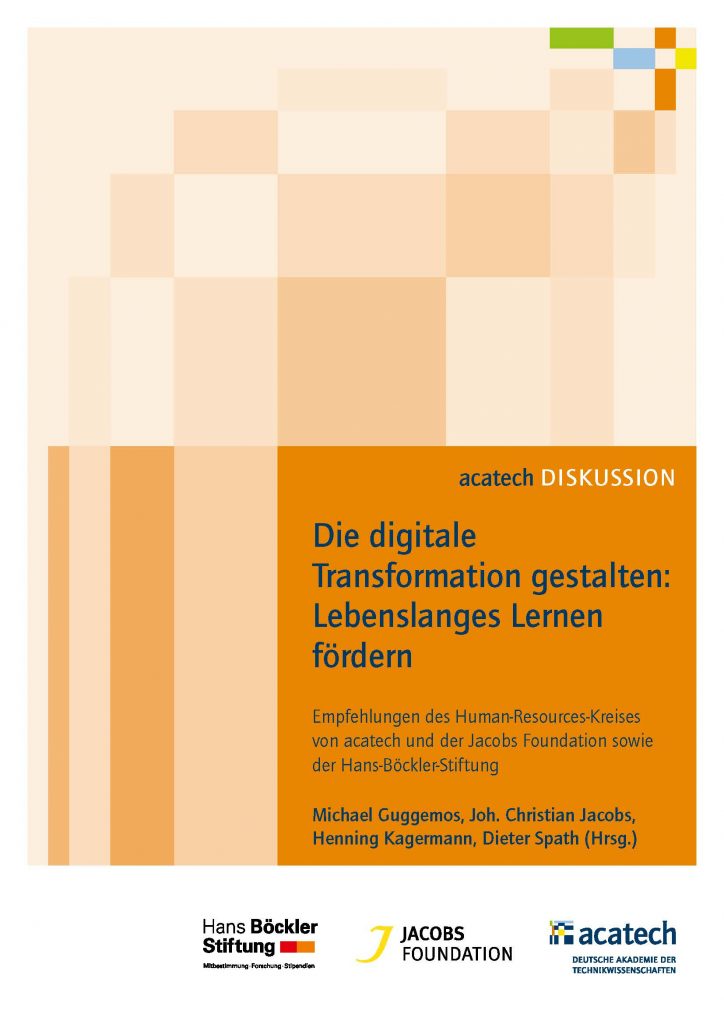
Recommendations provided by the acatech HR Working Group, the Jacobs Foundation and the Hans-Böckler-Foundation (content available only in German).
As the key to good jobs in the future, lifelong learning was consistently at the heart of the public debate. There is a consensus that continuing professional development provision currently falls a long way short of what is possible and necessary. In collaboration with the Hans Böckler Foundation, acatech’s HR Working Group addressed this challenge by formulating a series of policy options for promoting lifelong learning.
Strengthening the ecosystem for financing growth in Germany
As well as employment and education, acatech is also committed to promoting better overall conditions for innovation. A new project on financing growth addresses one of the key weaknesses of the German innovation system: the shortage of growth capital. This shortage is apparent during the phase where promising start-ups are striving to grow, using venture capital to finance their “exit” into a profitable business. The capital that they require during this growth phase is often hard to come by in Germany. acatech has brought together numerous stakeholders from the financial sector, the high-tech start-up scene and science and industry in order to draw up joint proposals for better growth finance. Their findings will be published during the first half of 2019.
Rebuilding trust in the market economy
In the conditions prevailing in our modern world, the market economy is the best system that we currently know of for enabling the freedom of the individual and solidarity among all members of society.
Excerpt from the acatech DISCUSSION Vertrauen in die Marktwirtschaft zurückgewinnen
In addition to the shortage of growth capital, Germany’s market economy is afflicted by a much more fundamental problem – it doesn’t have a particularly good image. Many people seem to feel that their ethical values with regard to freedom, dignity, solidarity and justice are at odds with the economic and technological requirements of the market economy. The authors of a new acatech DISCUSSION publication argue that the industrial, scientific and political elites should make a more proactive and competent contribution to the public debate in order to better reconcile the principles of the market economy and the normative principles of our culture.
Further information
Projects
- SmartAiwork (Zukunft der Betriebsabläufe)*
- The Innovation Dialogue between the Federal Government, industry and science
- HR Working Group – Forum for HR Directors on the Future of Work
- Industrie 4.0 – Zukunft der Industriearbeit*
- Assessment criteria for the technological sciences and appointments in the technological sciences
- National Competence Monitoring (NKM) – Pilot phase
- Barometer of Young Talents in the STEM Subjects
Publications
- Vertrauen in die Marktwirtschaft zurückgewinnen – Für ein tragfähiges Narrativ werben und Diskursverantwortung wahrnehmen*
- Schule in der digitalen Transformation. Perspektiven der Bildungswissenschaften*
- Die digitale Transformation gestalten: Lebenslanges Lernen fördern. Empfehlungen des Human-Resources-Kreises von acatech und der Jacobs Foundation sowie der Hans-Böckler-Stiftung*
- Berufungen in den Technikwissenschaften. Empfehlungen zur Stärkung von Forschung und Innovation*
- Quality Criteria in the Technological Sciences
* Content only available in German.
Innovation

In August 2018, the German Cabinet approved the establishment of an agency to promote breakthrough innovations. The agency will organise ambitious competitions with the aim of involving new actors in innovation processes and promoting blue-sky innovation. This new funding instrument seeks to address a relative weakness in Germany’s innovation system that was also identified in the course of the Innovation Dialogue between the Federal Government, industry and science: Germany is not as good at disruptive innovation – i.e. innovations that trigger fundamental change – as it is at incremental innovation involving the continuous improvement of existing solutions. The authors of the discussion paper “Impulse für Sprunginnovationen in Deutschland” (Promoting Breakthrough Innovations in Germany), published in February 2018, argue that a high degree of independence from direct political control combined with flexible programme management will be key to the agency’s success. They believe that such an agency would constitute an important additional tool for promoting innovative products and services in Germany.

© iStock/Eoneren
The North Rhine-Westphalia Innovation Award also provides incentives for innovation. Prize money totalling 150,000 euros makes it the second most valuable award of its kind in Germany, after the German President’s “Deutscher Zukunkftspreis” Award for Innovation in Science and Technology. The prizegiving ceremony for last year’s NRW Innovation Award was held at Düsseldorf’s K 21 art gallery in February 2018. In his official address before the awards were presented, State Minister for Economic Affairs and long-time acatech Senator Andreas Pinkwart highlighted the importance of innovation to the state of North Rhine-Westphalia. The prizewinners were selected by a jury chaired by acatech President Henning Kagermann.
How to organise an adaptable production system
Smart Service Welt MOOC launched
Smart services delivered through data- and platform-based business models are becoming increasingly important. On 23 April 2018, acatech and Accenture launched a free, open access Massive Open Online Course (MOOC) on this topic.
Digitalisation is heightening competition in the realm of innovation – only those who change will survive. Adaptability is thus a matter of life and death for manufacturing companies. At the 2018 Hannover Messe, acatech presented a study that uses a variety of examples to illustrate how companies can become more adaptable. The Academy also launched its “Smart Service Welt” MOOC at the Hannover Messe.
Further information
Projects
- acatech HORIZONS: Cyber Security
- acatech HORIZONS: Blockchain
- The Innovation Dialogue between the Federal Government, industry and science
- The Research Council of the Plattform Industrie 4.0
- Innovationskraft in Deutschland verbessern – Ökosystem für Wachstumsfinanzierung stärken (Pilotphase)*
- National Competence Monitoring (NKM) – Pilot phase
Publications
News items
* Content only available in German.
Dialogue
Innovation Dialogue
Providing expert advice to the Federal Government: Twice a year, the Federal Chancellor, the Federal Minister of Education and Research, the Federal Minister for Economic Affairs, the Federal Minister of Finance and the Head of the Federal Chancellery meet with representatives of science, industry and civil society to discuss cutting-edge technologies and the innovation policy framework. A 17-member steering committee includes several of the Academy’s scientific Members and members of the acatech Senate. It is chaired by Henning Kagermann, who has served as Chairman of the acatech Board of Trustees since stepping down from his role as acatech President in May 2018.
The Innovation Dialogues are organised by a project office at acatech which also supplies background documentation on the relevant topics, ensuring a common factual basis for the discussions and the advice provided to the Federal Government. At the event held to mark the handover of the acatech presidency in May 2018, Federal Chancellor Angela Merkel announced her intention to continue the Innovation Dialogue during the new parliament. Looking back over the Innovation Dialogues held during the previous parliament, the Chancellor highlighted the topics of breakthrough innovations, biotechnology and human-machine interaction.
It is genuinely important that the Innovation Dialogue should continue. After all, we don’t have a monopoly on progress.
Federal Chancellor Angela Merkel
The German innovation system compared to other countries around the world
The first Innovation Dialogue of the new parliament, held in December 2018, focused on the strengths and weaknesses of the German innovation system compared to other countries around the world. The members of the Innovation Dialogue concluded that Germany’s innovation system is fundamentally strong, highlighting the fact that R&D spending has risen to almost three percent of GDP. Other strengths include Germany’s research system, which boasts several internationally acclaimed research institutions and universities, and its many world-leading companies in high-tech sectors such as the automotive, mechanical engineering and chemical industries.
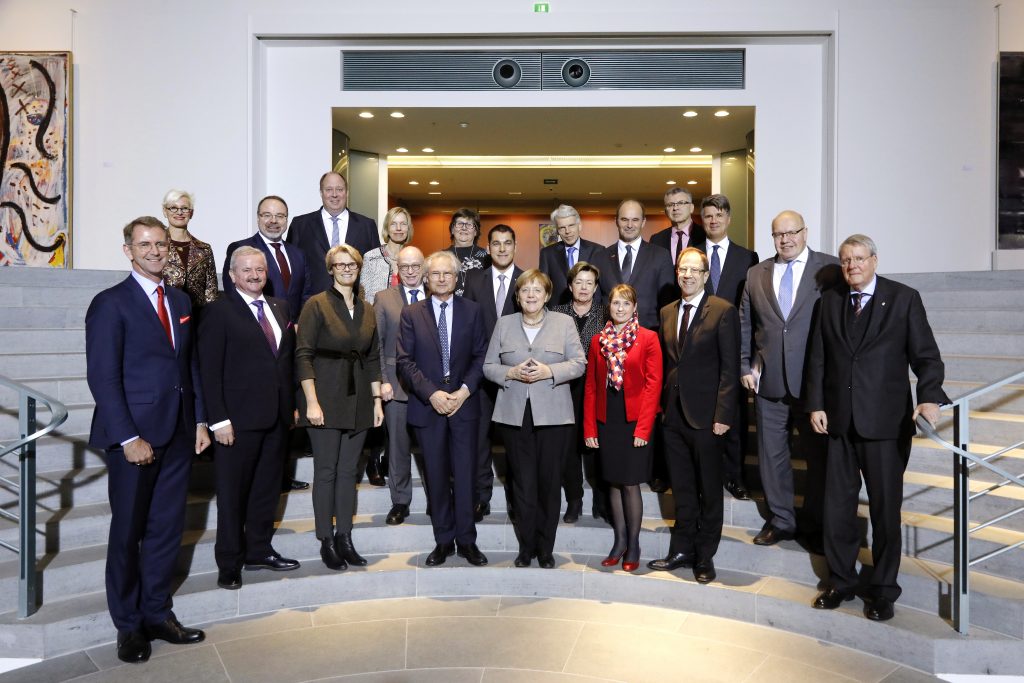
However, the participants in the discussion also warned that Germany cannot afford to rest on its laurels. It must get faster at translating the findings of its first-class basic research into concrete applications, particularly in the case of cutting-edge technologies. The agency for breakthrough innovations could play a key role in enabling an agile innovation policy. The contribution that a circular economy could make to dealing with some of our biggest social and environmental challenges was also addressed. The circular economy promises to promote stronger decoupling of profitability and resource consumption. Scheduled for summer 2019, the theme of the next Innovation Dialogue is “Driving Germany’s innovation system through competition with its Chinese counterpart”.
acatech HORIZONS

In its new acatech HORIZONS series, the Academy explores important technology fields that are already looming large on the horizon, but whose potential impacts still need to be determined and further investigated. Through these publications, the Academy wants to stimulate discussion about new technologies, identify policy options and contribute towards a proactive innovation policy.
Experts of the blockchain working group met with members of the German Bundestag at acatech’s Berlin office to discuss their findings. The discussions focused on how blockchain works and the technology’s potential applications across policy areas. For instance, blockchain may be used to enable new forms of e-government.
Julia Bacher from the World Food Programme WFP Innovation Accelerator and Eugen Luft from the IBM Blockchain Garage were invited as guest speakers to the “acatech am Dienstag” (acatech on Tuesday) event held in Munich in April 2018. The held debates focused on innovative blockchain technology applications in the fields of supply chain management and development cooperation. One of the key messages from these discussions as well as the HORIZONS publication is that blockchain is much more than simply the technology behind cryptocurrencies like Bitcoin. It enables secure transactions without the need for a trusted intermediary and without requiring the participants to trust each other. Possible applications range from development cooperation to social media without platform operators. However, the potential of blockchain has yet to be fully explored. The fact that many potential users still have little understanding of how the technology works, what it can and can’t do, and which alternative encryption technologies are available prompted acatech to select blockchain to be the first HORIZONS topic.
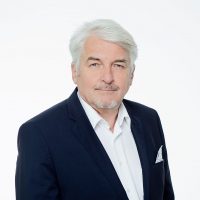
Everyone is talking about blockchain technology. But it is difficult to draw conclusions about it without a deeper insight into the IT side and a basic understanding of how it works. Consequently, acatech’s active engagement in this area is to be welcomed. Our aim is to provide objective analysis and recommendations for policymakers.
Manfred Broy, Head of the Zentrum Digitalisierung.Bayern and Chair of the acatech HORIZONS project group on blockchain. © blende 11 Fotografen
In summer 2018, the project group for the second publication in the acatech HORIZONS series was established under the chairmanship of Jörn Müller-Quade (Karlsruhe Institute of Technology). This edition, due to be published in mid-2019, will be devoted to the future of cybersecurity. The Academy is also planning a variety of new partnerships and event formats for the acatech HORIZONS series in 2019. An elective practical course entitled “acatech HORIZONTE – Cyber Security in jedem Alter” (acatech HORIZONS – cybersecurity for all ages) was launched in the 2019 summer semester in collaboration with the Munich University of Applied Sciences’ degree in Technical Writing and Technical Communication. A series of events on blockchain is also being planned in collaboration with the Amerikahaus.
Projects
Publications
News items
* Content only available in German.
European policy advice
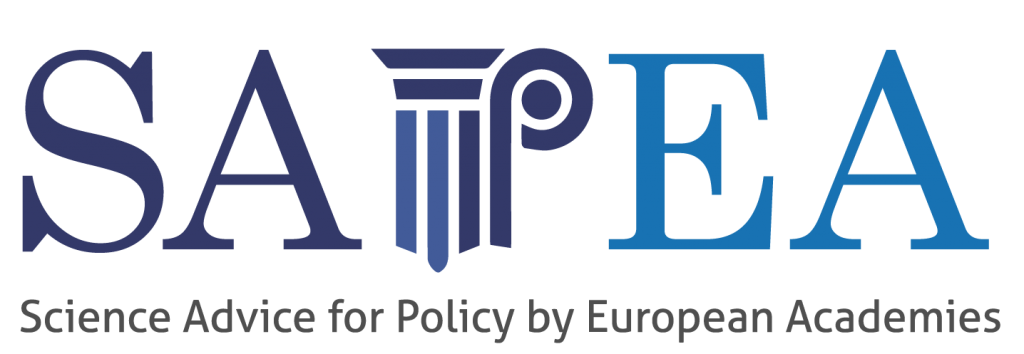
Since November 2016, five European academy networks are part of the European Commission’s Scientific Advice Mechanism (SAM) within the framework of the SAPEA project (Science Advice for Policy by European Academies). Policy-related questions requiring evidence-based scientific advice are addressed by the EU Commissioners to the Group of Scientific Advisers (GCSA). For each question, the academies bring together the available interdisciplinary, independent and state-of-the-art scientific knowledge in an evidence review report and suggest evidence-based policy options. The Scientific Advisors draw on the contents of these reports to formulate policy recommendations for the European Commission. The aim is to ensure that scientific evidence plays a stronger role in the European policymaking process from an early stage. The five European Academy Networks Academia Europaea, ALLEA, EASAC, Euro-CASE and FEAM bring together the expertise of more than 100 academies in 40 countries across Europe. The SAPEA project is funded through Horizon 2020 and is coordinated by acatech.
In 2018, two questions from the European Commissioners provided the focus of SAPEA’s work: “Novel Carbon Capture and Utilisation Technologies: research and climate aspects” was prepared by the CCU Working Group chaired by acatech member Robert Schlögl (MPI for Chemicals energy conversion). In addition, SAPEA produced a report on the topical issue of “Improving authorisation processes for plant protection products in Europe”. Based on the reports, the Group of Chief Scientific Advisors to the European Commission formulated their scientific opinion which includes specific policy recommendations.
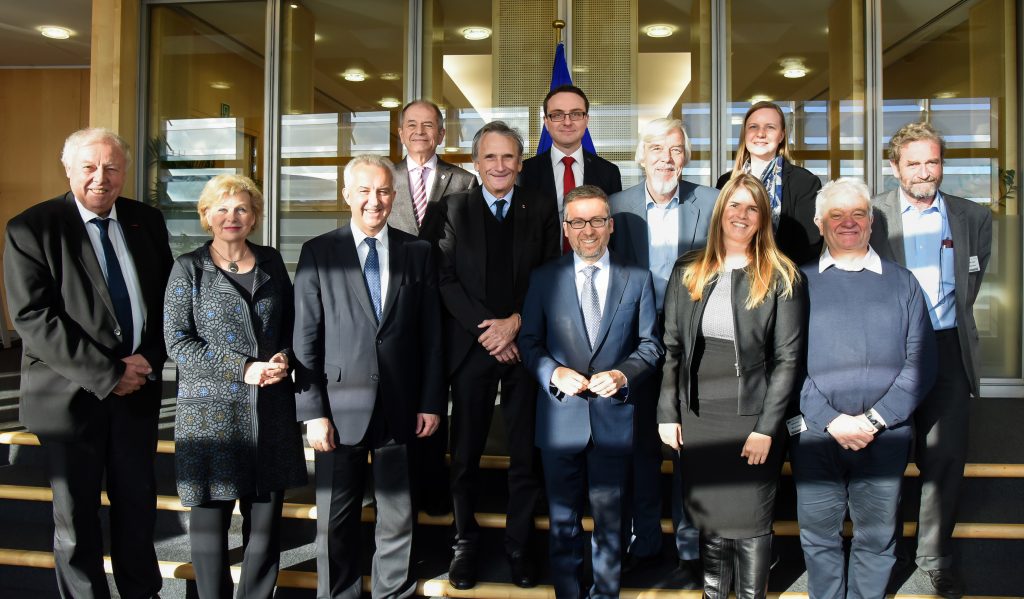
Experts from the academies are currently working on three further topics: “Microplastics in Nature and Society”, “Transforming the Future of Ageing”, and “Making sense of science under conditions of complexity and uncertainty”.
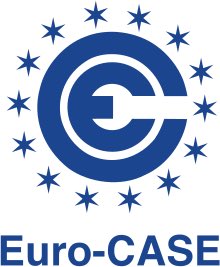
One of SAPEA’s project partners includes the European Council of Academies of Applied Sciences, Technologies and Engineering (Euro-CASE), which has been chaired by acatech Vice-President Reinhard F. Hüttl since 2013. acatech Member Eberhard Umbach worked with scientists and engineers from various partner academies to develop proposals for a systemic approach to the energy system in the EU. SAPEA, with Euro-CASE as the leading Academy, is currently discussing these proposals with the European Commission.
In May 2018, during the Bulgarian presidency of the Council of the EU, SAPEA organised the conference “Shaping European Science Advice: Insights and Experiences” in Sofia.
Publications
News items
International Cooperation
acatech’s work in the field of international cooperation involves engaging in partnerships across the globe, providing advice to policymakers and the public at a European and global level and promoting new initiatives.

I strongly believe that an international mindset is key to a successful future, for instance in terms of tackling the major challenges facing society and ensuring our nation’s competitiveness. acatech can play an active role in shaping this successful future.
acatech has strengthened its international profile through cooperation with partners in countries such as the USA, Israel, China, Korea and Japan, as well as with the UN World Food Programme Innovation Accelerator and with our sister academies that collaborate in organisations such as Euro-CASE and CAETS.
In his capacity as Global Representative of the Plattform Industrie 4.0, Henning Kagermann has brought the latest Industrie 4.0 developments in Germany to an international audience. He has met with scientists, ministry officials and businesses across the globe to discuss pathways to Industrie 4.0, the most promising platform strategies, and how best to address issues such as network security, norms and standards and the regulatory framework.
acatech experts also presented the results of the Academy’s work at international events and on delegation trips, where they were able to establish new links with chambers of foreign trade, ministries, businesses, universities and research institutions, laying the foundations for new joint projects. One example is a joint initiative with the Japanese company Hitachi that led to the publication of a white paper on “human-machine interaction”.
Through its international activities, the Academy aims to support the global community as a competent and trusted advisor of policymakers and the public. The key areas of acatech’s international work are summarised in its current internationalisation strategy.
Events for parliamentarians
The Academy holds acatech am Mittag (Lunch with acatech) events several times a year, providing an opportunity to address topical issues with cross-party groups of German Bundestag deputies and their advisors. Blockchain and the formulation of a blockchain strategy for Germany were discussed at an event held in April in Berlin. Other acatech am Mittag events focused on how energy sector coupling can support climate protection and on acatech’s TechnikRadar survey.
This year was the fifth occasion that acatech invited the parliamentary parties’ research policy spokespersons to attend a dinner hosted by the acatech Executive Board. The dinner was held in July at the Deutsche Parlamentarische Gesellschaft club in Berlin.
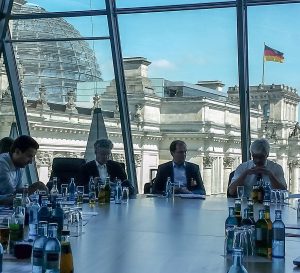
The joint academy project “Energy Systems of the Future” (ESYS) has launched a series of events entitled “Energie.Wende.Punkte”, aimed specifically at the research assistants of German Bundestag deputies and the parliamentary parties’ research spokespersons. At these events, the academies share evidence-based information on topical energy policy and energy industry issues through a series of lectures and panel discussions. The first discussion, held in the German Bundestag in June, addressed practical ways of using surplus wind and solar power to support the energy transition. Further events will be held in 2019.
Projects
Publications
* Content only available in German.
Public discussion events
Engaging in a dialogue with the public about how we want to shape technological developments in Germany formed a core part of acatech’s agenda in 2018. A variety of discussion events were held covering a wide range of themes, from the working life of the future to artificial photosynthesis and social scoring.
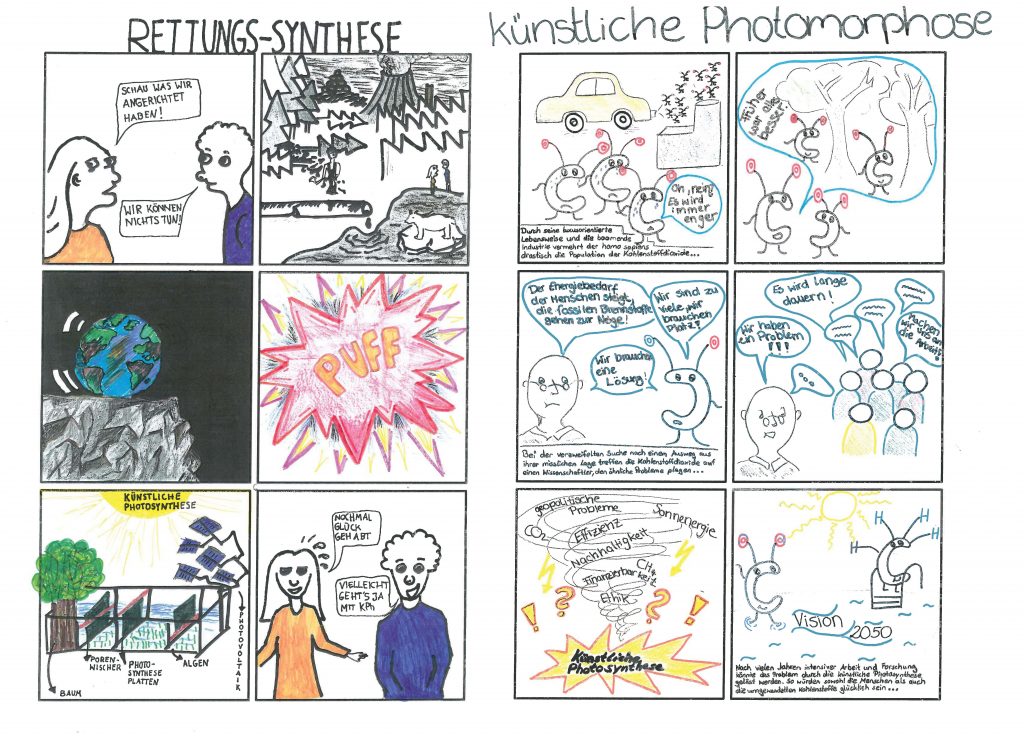
At its monthly “acatech am Dienstag” (acatech on Tuesday) events, the Academy invites people to participate in open debates at the acatech Forum on Munich’s Karolinenplatz. These evening discussion events have become a fixture in the Munich calendar and a meeting point for interested parties from science, industry, government and the general public. But why should they only be available to people in Munich? Since autumn 2018 “acatech am Dienstag” has been touring other towns and cities in Bavaria. An event in Augsburg asked how robots and artificial intelligence can be used to deliver enhanced care, and which tasks should still be performed by people. In Nuremberg, interested parties were invited to discuss the future of automated road transport and traffic with experts from the Academy. Finally, nanotechnology provided the theme for an event held in Würzburg just a few days later. Since the events outside of Munich also proved to be extremely popular, “acatech am Dienstag” will be touring several different towns and cities again in 2019, and will even make its first foray across the Bavarian border.
Together with the other academies of science and “Wissenschaft im Dialog” (WiD), acatech supports Germany’s Science Years as a partner in the “Wissenschaft Kontrovers” discussion series. The Working Life of the Future was chosen as the theme for last year’s Science Year, which was organised under the auspices of the Federal Ministry of Education and Research. acatech and WiD hosted a public debate at Magdeburg Town Hall the evening before the acatech Academy Day in the same city.
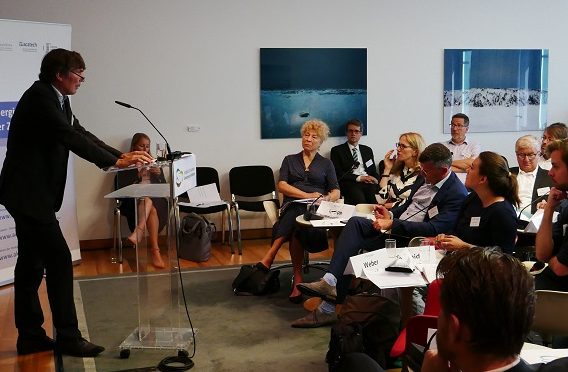
Berlin is the chief venue for the debates organised by the “Energy Systems of the Future” (ESYS) project, which is coordinated by the acatech Secretariat. The ESYS project’s “trialogues” bring together actors from science, industry, government and civil society around the same table to discuss policy options for the implementation of a secure, affordable and sustainable energy supply. Each of the three trialogues held in 2018 was attended by some 50 participants.
The members of acatech’s Executive Board were frequent participants in the trialogues, the “acatech am Dienstag” events and all the other discussion events held in 2018. As an expert on the digital transformation of the workplace, acatech President Dieter Spath spoke at events such as the “Wissenschaft kontrovers” public discussion in Magdeburg, the CEBIT Future Work Forum in Hannover and the BIBB Congress in Berlin. In a speech at the Deutsches Museum in Munich, co-chair of the Plattform Lernende Systeme and acatech President Karl-Heinz Streibich explained how “robot colleagues” can assist people in the workplace.
The two science slams that acatech organised in collaboration with the Münchner Volkshochschule and the Bavarian Academy of Sciences and Humanities in February and November 2018 featured a mix of humour and serious science. Science slammers have just a few minutes to capture the attention and the hearts of their audience. They are allowed to use slide presentations, props and live experiments to get their message across, and are judged on performance as well as content. The winner of the slam is chosen by the audience.

Academy
Organisation
acatech’s Members are leading experts from the fields of engineering, the applied sciences, the humanities, economics and the social sciences. They are invited to join the Academy on the basis of their outstanding scientific achievements and excellent reputation. acatech had a total of 540 Members as of December 2018. This included 28 newly-elected experts from the fields of engineering, the natural sciences, the humanities, economics and the social sciences. A complete list of all acatech’s Members is available here.
New ordinary acatech Members in 2018
- Prof. Dr.-Ing. habil. Aldo R. Boccaccini, Friedrich-Alexander-Universität Erlangen-Nürnberg
- Prof. Dr.-Ing. Klaus Drechsler, Technical University of Munich; ESCM (European Society for Composite Materials)
- Hon.-Prof. Dr.-Ing. Wolfgang Ecker, Infineon Technologies AG; Technical University of Munich
- Prof. Dr. Claudia Felser, Max Planck Institute for Chemical Physics of Solids, Dresden; DFG Graduate School of Excellence “Materials Science in Mainz”
- Prof. Dr.‐Ing. Dietmar Göhlich, Technische Universität Berlin; Institute of Engineering Design, Microtechnology and Medical Engineering
- Prof. Oliver Günther, University of Potsdam
- Prof. Dr.-Ing. Jutta Hanson, Technische Universität Darmstadt
- Prof. Dr. Michael Henke, Fraunhofer Institute for Material Flow and Logistics IML and Technische Universität Dortmund
- Prof. Dr. Hans-Martin Henning, Fraunhofer Institute for Solar Energy Systems ISE; University of Freiburg
- Prof. Dr. Burkard Hillebrands, Technische Universität Kaiserslautern
- Prof. Dr.-Ing. habil. Bernhard Karpuschewski, University of Bremen; Leibniz-Institut für Werkstofforientierte Technologien (IWT)
- Prof. Dr.-Ing. Arno Kwade, Technische Universität Braunschweig
- Prof. Dr. Karl Leo, Technische Universität Dresden
- Prof. Dr.-Ing. habil. Peter Liggesmeyer, Fraunhofer Institute for Experimental Software Engineering IESE; Technische Universität Kaiserslautern
- Prof. Dr. Martina Löw, Technische Universität Berlin
- Prof. Anja Maier Ph.D., Technical University of Denmark (DTU)
- Prof. Dr.-Ing. Hans Jürgen Maier, Leibniz University Hannover
- Prof. Dr. techn. Wolfgang Nejdl, Leibniz University Hannover; L3S Research Center
- Prof. Dr. Karen Pittel, ifo Center for Energy, Climate and Resources; LMU Munich
- Prof. Dr.-Ing. Corinna Salander, University of Stuttgart
- Prof. Dr.-Ing. Ulf Schlichtmann, Technical University of Munich
- Prof. Dr. Andreas Schmid, Helmholtz Centre for Environmental Research (UFZ)
- Prof. Dr. Oliver G. Schmidt, Chemnitz University of Technology; Leibniz Institute for Solid State and Materials Research Dresden
- Prof. Dr.-Ing. habil. Jörg Schröder, University of Duisburg-Essen
- Prof. Dr.-Ing. Jürgen Teich, Friedrich-Alexander-Universität Erlangen-Nürnberg
- Prof. Dr. Martin Wegener, Karlsruhe Institute of Technology
New associate Member in 2018
- Prof. Liu Zhenya, Global Energy Interconnection Development and Cooperation Organization (GEIDCO); China Electricity Councils
acatech Members who passed away
- Prof. Ph.D. Wolfgang-Martin Boerner, University of Illinois at Chicago
- Prof. Dr.-Ing. Walter Döpper, Ingenieur- und Technologie-Beratung GmbH
- Prof. Dr.-Ing. Josef Eibl, IIBW – Ingenieure im Bauwesen GbR
- Prof. Dr. Lothar Frey, Friedrich-Alexander-Universität Erlangen-Nürnberg
- Prof. Dr.-Ing. Dieter Kind, Technische Universität Braunschweig
- Prof. Dr. Klaus Thoma, Technische Universität Dresden
acatech’s Senate forms the second pillar of the Academy, alongside the Members. The Senate includes members of technology companies, associations, societies and government, as well as the presidents of the major science organisations. The members of the Senate advise the Academy on strategic issues and channel proposals from industry.
New members of acatech’s Senate are proposed by the Executive Board and elected by the Senate’s existing members. As of December 2018, acatech’s Senate comprised more than 100 members from industry, associations, societies, government and science organisations. This figure includes the 16 new members minus the seven members who left the Senate. A complete list of all acatech’s Senate members is available here.
New Senate members in 2018
- Adel Al-Saleh, Deutsche Telekom AG
- Klaus Fröhlich, BMW Group
- Prof. Dr. Sabina Jeschke, Deutsche Bahn AG
- Anja Karliczek, Federal Ministry of Education and Research
- Dieter Kempf, Federation of German Industries (BDI)
- Yoshiyuki Ogura, Hitachi Europe Ltd.
- Wolfram Ressel, TU 9
- Thomas Spangler, Brose Group
- Carsten Spohr, Deutsche Lufthansa AG
- Sanjay Brahmawar, Software AG
- Ursula Morgenstern, Atos Deutschland GmbH
- Ralf Dieter, Dürr AG
- Ulrich Störk, PricewaterhouseCoopers GmbH
- Andreas Barth, MHP GmbH
- Christoph Winterhalter, DIN e.V.
- Andreas Kreimeyer, K+S AG
Members who left the Senate in 2018
- Reinhard Clemens, Deutsche Telekom AG
- Rüdiger Grube, Deutsche Bahn AG
- Johanna Wanka, Federal Ministry of Education and Research
- Klaus Dieter Rennert, Hitachi Europe Ltd.
- Jürgen Otto, Brose Group
- Wolfgang Mayrhuber, Deutsche Lufthansa AG
- Winfried Holz, Atos Deutschland GmbH
acatech’s Executive Board represents the Academy externally and is responsible for its management. Its members are elected from the members of the General Assembly and the Senate, ensuring that the Executive Board represents both pillars of the Academy. The Executive Board includes acatech’s Presidents and Vice-Presidents, as well as its Managing Director and the scientific President’s representative, both of whom serve as non-voting members (on 16 October 2018, the General Assembly adopted a change to acatech’s statutes entitling the scientific President’s representative to a seat on the Executive Board. Having been recorded in the register of associations, this change has now come into effect). After completing two terms of office, in 2018 Henning Kagermann was replaced by Karl-Heinz Streibich, who took over his role as one of acatech’s two Presidents alongside Dieter Spath. A further five new members joined acatech’s Executive Board in 2018, bringing the total number of members to 18 (16 voting and two non-voting members). A complete list of all acatech’s Executive Board members is available here. The Academy’s Management Board is made up of the Executive Board members responsible for acatech’s operational management and comprises the Presidents, Vice-Presidents, Managing Director and scientific President’s representative (on 16 October 2018, the General Assembly adopted a change to acatech’s statutes entitling the scientific President’s representative to a seat on the Executive Board. Having been recorded in the register of associations, this change has now come into effect).
New Executive Board members in 2018
- Univ.-Prof. Dr. Dr. Dr. h.c. Ann-Kathrin Achleitner, Technical University of Munich
- Prof. Dr.-Ing. Harald Bolt, Forschungszentrum Jülich GmbH
- Dr. Reinhard Ploss, Infineon Techologies AG
- Prof. Dr. Dirk Uwe Sauer, RWTH Aachen University
- Prof. Dr. Martina Schraudner, acatech (ex officio)
The acatech Board of Trustees comprises members from academia, industry, government and civil society. Its primary role is to help the Management Board decide on the Academy’s strategic direction. The Board of Trustees meets at least once a year.
In 2018, the acatech Board of Trustees had 18 members. A complete list of the members of the Board of Trustees is available here.
New members of the Board of Trustees in 2018
- Klaus Fröhlich, BMW Group
Members who left the Board of Trustees in 2018
- Dr. Reinhard Ploss, Infineon Technologies AG
The acatech Secretariat in Munich is the Academy’s headquarters. It is home to the Academy’s senior management and the majority of its staff in the support, organisation and administration functions, as well as those responsible for specific priority themes. acatech has two offices in Berlin: its main Berlin office and an ESYS project office. The acatech office in Brussels coordinates the Academy’s networking activities at EU level. In 2018, a total of 101 members of staff were employed at acatech’s offices, over 60 percent of whom were women. During this period the Academy was also supported by 26 student assistants and two trainees.
Finances
acatech is a non-profit organisation. Its institutional funding is shared equally between the Federal Government and the Länder. This is supplemented by public and private project funding.
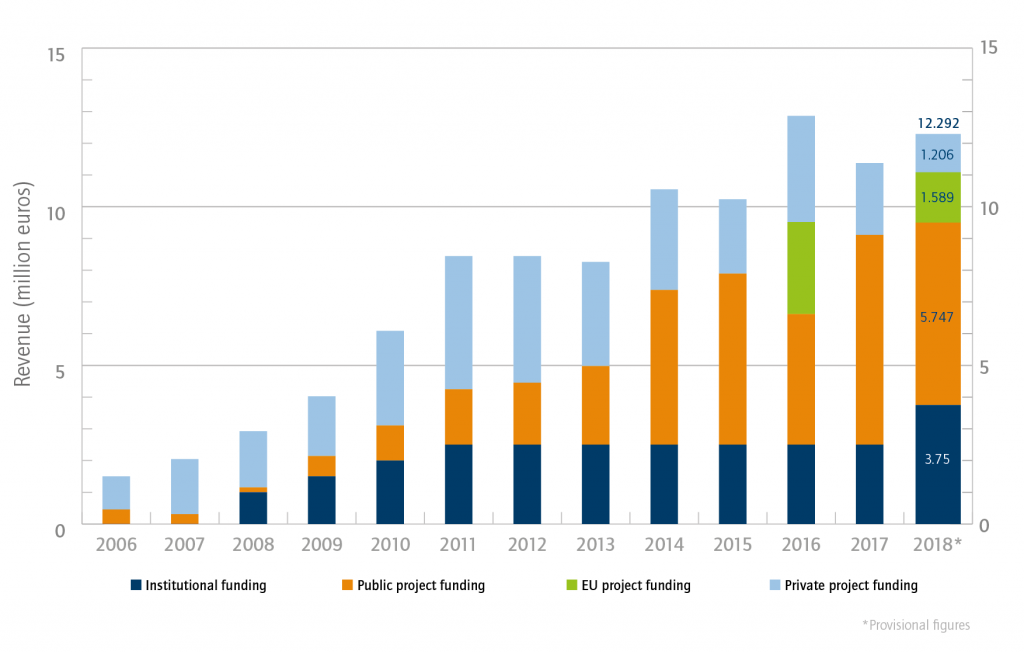
What people are saying about our work
“It is genuinely important that the Innovation Dialogue should continue. After all, we don’t have a monopoly on progress, as demonstrated by the example of artificial intelligence. Having originally been among the leaders in this field, we are suddenly discovering that we have fallen behind in terms of the widespread deployment of this technology.”
Federal Chancellor Angela Merkel
“We are all affected by the digital transformation of the workplace. I hope that as Members of the Academy we can work together across disciplines to help create employment with a future in Germany.”
Michael Schenk, acatech Member and Director of the Fraunhofer Institute for Factory Operation and Automation IFF
“Today, we are standing on the threshold of a new age. Biotechnology has the potential to deliver human progress on an unprecedented scale. If we are to make the most of what it has to offer, we must ensure a constructive public debate that focuses on the opportunities and is rooted in our values as a society. Strong voices like acatech’s will play an indispensable role.”
Stefan Oschmann, Chairman of the Executive Board of Merck
“Everyone is talking about blockchain technology. But it is difficult to draw conclusions about it without a deeper insight into the IT side and a basic understanding of how it works. Consequently, acatech’s active engagement in this area is to be welcomed. Our aim is to provide objective analysis and recommendations for policymakers.”
Manfred Broy, Technical University of Munich, acatech Member and Chair of the HORIZONS working group on blockchain
“The working groups use their expertise to pool and develop our current knowledge in the field of learning systems, laying the foundations for successful applications ‘made in Germany’. Underlying their work is the Plattform Lernende Systeme’s goal of putting people at the heart of the development and deployment of artificial intelligence in Germany.”
Wolf-Dieter Lukas, Director-General at the Federal Ministry of Education and Research (BMBF)
“Henning Kagermann, as one of acatech’s two Presidents, you have led the Academy for almost nine years. In this time, you have established yourself as the voice and champion of the technological sciences, and your opinion has become an essential point of reference.”
Federal Chancellor Angela Merkel
“It has been a busy ten years – we have carried out strategic projects on topics such as Industrie 4.0, smart services and learning systems, established the joint academy project Energy Systems of the Future, and organised the Federal Government’s Innovation Dialogues. I would like to thank everyone who contributes to acatech on a voluntary basis. We will continue to do everything we can to support our country’s future.”
acatech President Dieter Spath at acatech’s Annual Meeting in Berlin on 16 October 2018
“We want to provide a platform for dialogue that facilitates open discussions between experts from science and industry and policymakers, civil society organisations and the general public. In doing so, we will be creating a forum that not only develops science-based scenarios and recommendations but also builds trust among the public.”
acatech President Karl-Heinz Streibich
Förderverein
acatech – National Academy of Science and Engineering is a non-profit organisation that relies on a mix of private donations and public funding from the Federal Government and the Länder. The private donations are raised by the acatech Förderverein, which comprises members from industry, academia, government and civil society. The Academy’s projects, initiatives and dialogue events would not be possible without the contribution of these funders.
The Förderverein currently consists of 47 individuals and 21 companies. In 2018, they once more helped to raise donations towards the implementation of the Academy’s projects. acatech would like to thank them for their hard work and support.
Board of the Förderverein

- Dr.-Ing. E. h. Bernd Pischetsrieder, Chairman of the Supervisory Board of Munich RE, Chairman of the Board of the Förderverein
- Prof. Dr. Hermann Requardt, Deputy Chairman of the Board of the Förderverein
- Manfred Rauhmeier, acatech Managing Director, Board member and Secretary of the Förderverein
Private project funding
Contributions from Förderverein members
- A.T. Kearney GmbH
- ABB Ltd
- Accenture GmbH
- Adecco Group AG
- Alfred Kärcher SE & Co. KG
- Atos Information Technology GmbH
- BASF SE
- Bayer AG
- Beckhoff Automation GmbH & Co. KG
- Bertelsmann SE & Co. KGaA
- BMW AG
- Brose Fahrzeugteile GmbH & Co. KG
- Bruker Physik GmbH
- BSH Hausgeräte GmbH
- Carl Zeiss AG
- Clariant AG
- Dassault Systèmes Deutschland GmbH
- Deutsche Börse AG
- Deutsche Post AG
- Duisburger Hafen AG
- Evonik Industries AG
- ExxonMobil Central Europe Holding GmbH
- Festo AG & Co. KG
- Friedhelm Loh Stiftung & Co. KG
- Georgsmarienhütte GmbH
- Google Germany GmbH
- Grillo-Werke AG
- Grünenthal GmbH
- Harting Deutschland GmbH & Co. KG
- Herrenknecht AG
- Hitachi Europe Ltd.
- Huawei Technologies Deutschland GmbH
- IBM Deutschland GmbH
- Infineon Technologies AG
- innogy SE
- Intel Deutschland GmbH
- Jacobs Foundation
- Jopp Holding GmbH
- Klöckner & Co SE
- Linde AG
- Merck KGaA
- Muhr und Bender KG
- Münchener Rückversicherungs-Gesellschaft AG
- Otto Fuchs KG
- PSI Software AG
- Robert Bosch GmbH
- SAP SE
- SEW-EURODRIVE GmbH & Co KG
- Sick AG
- Siemens AG
- Software AG
- Stahlinstitut VDEh
- Stifterverband für die Deutsche Wissenschaft e. V.
- Surteco Group SE
- Total Deutschland GmbH
- TRUMPF GmbH + Co. KG
- TÜV Rheinland Berlin Brandenburg Pfalz e. V.
- TÜV SÜD AG
- UNITY AG
- Volkswagen AG
- WAGO Kontakttechnik GmbH & Co. KG
- Weidmüller Interface GmbH & Co. KG
- Wittenstein SE
Private project donations
- BASF SE
- BMW AG
- Covestro Deutschland AG
- Daimler AG
- E.ON SE
- innogy SE
- Jacobs, Joh. Christian
- Jacobs Foundation
- KfW – Kreditanstalt für Wiederaufbau
- Körber-Stiftung
- Merck KGaA
- Siemens AG
- Verband der Automobilindustrie e. V.
- Volkswagen AG
Payments in kind
- BMW AG
- Deutsche Lufthansa AG
- Deutsche Telekom AG
